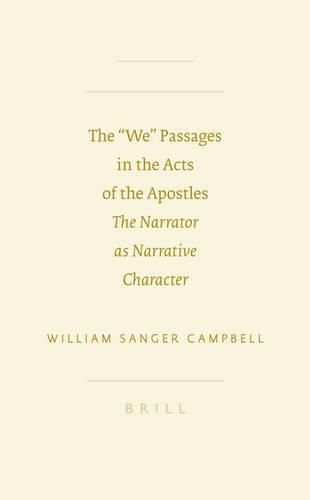Readings Newsletter
Become a Readings Member to make your shopping experience even easier.
Sign in or sign up for free!
You’re not far away from qualifying for FREE standard shipping within Australia
You’ve qualified for FREE standard shipping within Australia
The cart is loading…






This book explores the narrative significance of the we passages in Acts within the boundaries of acceptable ancient grammatical practice. It contends that the occasional firstperson plural narrator represents a character whose entrance at crucial moments in Paul’s career parallels the role of Barnabas, the apostle’s earlier companion. Although consistent with the grammatical practice of ancient writers, the use of the we style in Acts nonetheless represents a variation of those conventions because the author of Acts wrote anonymously and never claimed personal participation in the events narrated. In analyzing the function of the narrator as narrative character, the book presents narrative literary strategy as a fruitful approach to these enigmatic texts whose narrative possibilities have in the past been subordinated to their historical potential.
Paperback edition is available from the Society of Biblical Literature (www.sbl-site.org)
$9.00 standard shipping within Australia
FREE standard shipping within Australia for orders over $100.00
Express & International shipping calculated at checkout
This book explores the narrative significance of the we passages in Acts within the boundaries of acceptable ancient grammatical practice. It contends that the occasional firstperson plural narrator represents a character whose entrance at crucial moments in Paul’s career parallels the role of Barnabas, the apostle’s earlier companion. Although consistent with the grammatical practice of ancient writers, the use of the we style in Acts nonetheless represents a variation of those conventions because the author of Acts wrote anonymously and never claimed personal participation in the events narrated. In analyzing the function of the narrator as narrative character, the book presents narrative literary strategy as a fruitful approach to these enigmatic texts whose narrative possibilities have in the past been subordinated to their historical potential.
Paperback edition is available from the Society of Biblical Literature (www.sbl-site.org)